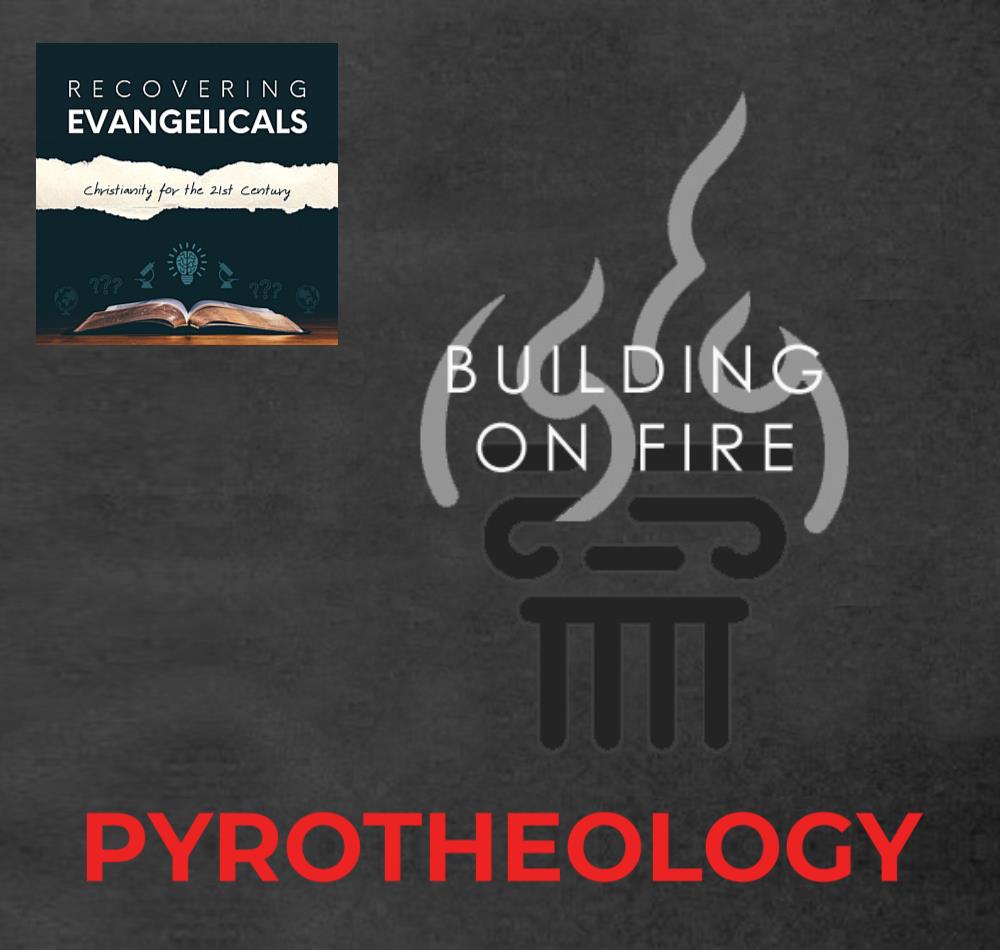
 Recovering Evangelicals
Recovering Evangelicals #153 – A post-Christendom Christianity
A northern Irish philosopher (who grew up in the 30-year war between “Protestants” and “Catholics”) gives us a whole new perspective on this ancient religion.

This week, we’ll hear from a very thought-provoking philosopher — Dr. Peter Rollins — who we guarantee will have you thinking about Christian faith in entirely new ways. Peter grew up in Ireland during “the Troubles” …. a 30 year conflict between “Catholics” and “Protestants,” marked by bombings and brutally vicious killings. At that time, identity became weaponized (much as we see happening today). Nihilism triggered a fundamental rupture of his worldview, and the resulting cognitive crisis led Peter into religion and religious studies. His academic studies “broke [him] in the best possible way.” He’s “not a confessional Christian” (he doesn’t define himself along a set of doctrines and beliefs). Instead, he’s interested in “different modes of being” and is drawn to the Christian mode of being: “Christianity is the insight that there is a fundamental antagonism, assymetry or lack at the heart of everything, and the universe is fundamentally incomplete, fundamentally contradictory. The cure is the ability and the courage to embrace this contradiction at the heart of everything.”
In our conversation with him, we spent about ten minutes on each the following five main themes:
(1) Christianity: the contradictions and incompleteness inherent in the universe and experienced reality, and how that frustrates the insatiable desire of humans to fill an inner void through money, love, power, sex, knowledge …. or even religious faith. But all of these will fail. Christianity is unique among other faiths in having a belief in the death of God and a self-divided absolute: this frees us from the pursuit of trying to be happy, whole and complete. Hegel provided a whole new perspective on Christ’s cry: “My God, why have you forsaken me?” Philosophers thought they could find certainty in mathematics, but even there they found contradictions and paradoxes.
(2) God: Supreme Being? Beyond being? Ground of being? Event? Anselm: God is that which none greater can be conceived. The mystics (Eckhart): God is the name for that which cannot be conceived. Existential thinkers (Tillich): that which you cannot objectify, but is present in the rationale behind truth and reality. Karl Barth and the numinous. Kant versus Hegel. Kierkegaard versus Hegel (or Hegelians). Roger Penrose: quantum indeterminacy and proto-consciousness. Transcendence and immanence. Jacques Derrida: deconstructing words and ideas.
(3) God-is-dead theology. The notion of the death of God actually began with the Apostle Paul, who saw this notion as essential for salvation. Luther, Hegel, Nietzsche, and Freud all built on this idea. We also talked about one of Rollin’s latest projects: “Pyrotheology” (the inspiration for this name came from Spanish anarchist Buenaventura Durruti, who once said that “the only church that illuminates is a burning church”).
(4) the Bible, and Divine Inspiration. Rollins puts a new spin on inerrancy and infallibility: we have to treat the Bible as real and “literally” true in the same way that a psychoanalyst needs to take their patient’s dreams as real and literal before looking for the true meaning deep down. We need to take the words, images, ideas as absolute truth, and then begin to parse and deconstruct them.
(5) Christ. The paradox of his humanity and divinity. Tertullian: I believe in the crucifixion because it’s absurd. Hegel and the monstrosity of Christ. The historical Jesus versus “the Christ.” The paradox of the incarnation (and resurrection) within a first century Hellenic Greek context (which saw the body as evil, and the spirit as good).
Find more information about Dr. Peter Rollins at his website and at his YouTube channel.
Episode image by permission.
To help grow this podcast, please like, share and post a rating/review at your favorite podcast catcher.
Subscribe here to get updates each time a new episode is posted, and find us on Twitter or Facebook.
Back to Recovering Evangelicals home-page and the podcast archive
